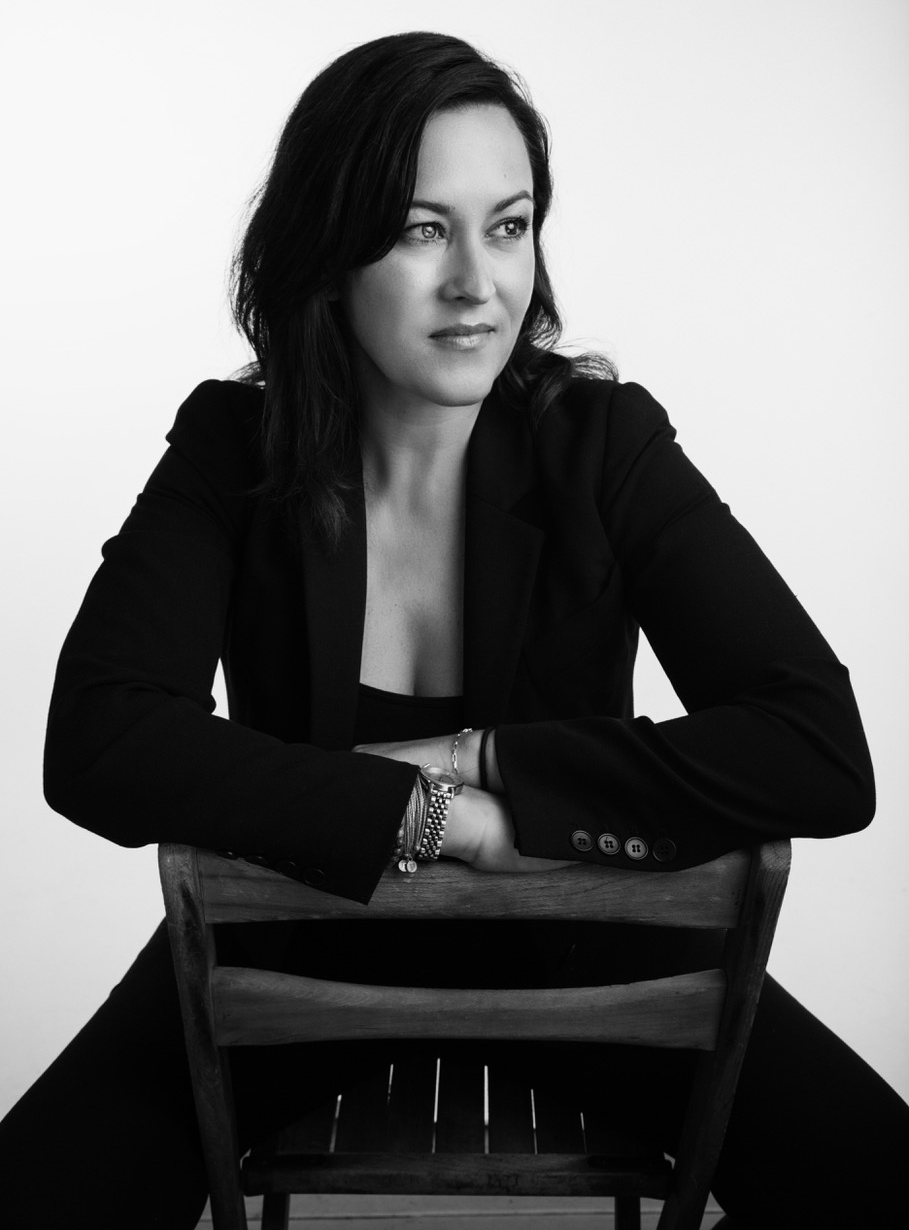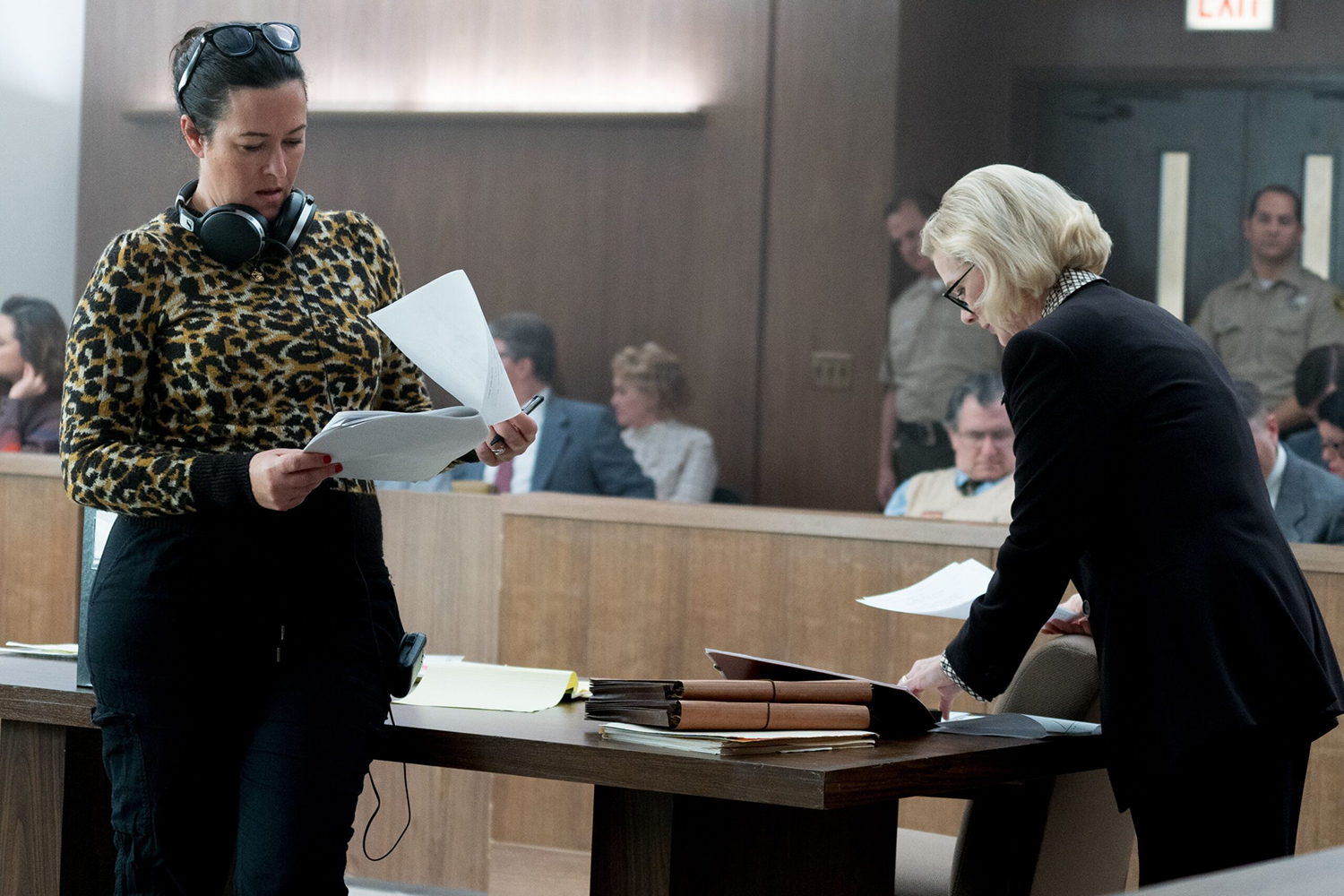
- Interviews
Maggie Kiley Trusting Her Instincts
“You have to be able to trust your instincts; when you do, in the moment, you can be successful.”
It started with a backyard charity production of Annie that 8-year-old Maggie Kiley staged with her sister in Rochester, New York. The Co-Executive Producer and Director of four of the eight episodes in USA Network’s anthology series, Dirty John: Betty Broderick, shares the moment her love affair with entertainment sparked. “The audience were our neighbors in lawn chairs, but I still remember the feeling,” she says. That feeling led to community theater and, when she was 18, to NYU, where after initially pursuing acting, she ultimately found her true calling as a director. “When you field that first creative endeavor and feel that first charge … It excited me.”

Unlike many television directors, Kiley had success in film (Brightest Star) before segueing to television. Always one to spot talent, Ryan Murphy chose Kiley as the first participant in his Half Initiative, leading her to gigs helming episodes of American Horror Story: Cult, Scream Queens, and 9-1-1. Her credits reflect her diversity, since she has made contributions to CW’s Katy Keene, Riverdale, Marvel’s The Gifted, Netflix’s What/If and Syfy’s George R. R. Martin’s Nighflyers, to name just a few.
In 2019 Maggie scored a coveted exclusive, multi-year overall deal with Warner Brothers Television, opening the door to developing new projects, executive producing and directing. This is a major accomplishment, as generally fewer women have received this invitation. Dirty John: Betty Broderick is the second in USA’s True-crime anthology series. It tells the story of a high society woman, mother of four, driven to the edge by her husband’s lies, manipulation, and psychological abuse, that slowly escalates as his extra-marital affair is revealed, a bitter divorce ensues, and blood is shed. This is a warts-and-all depiction of the extremes of erratic behavior provoked under pressure. Not only is the series entertaining, but it’s also a lesson in how those with money and know-how can leverage the law in their favor and leave those they once loved, broken and floundering. Amanda Peet stars as Betty Broderick, Christian Slater is Dan.
Dirty John: Betty Broderick is a difficult story, and it delves deep into the psyche of the characters. How did Dirty John come to you?
Alexandra Cunningham, the series’ creator, also did the first season of Dirty John. Part of the appeal was Alex’s interest in looking at the story from Betty Broderick’s perspective. If people are familiar with Betty’s story, it’s about the big, bold headlines. They are exciting and interesting to read, but they don’t tell you a whole lot about how those headlines came to be. As a filmmaker, I love stories you can tell from the inside out. It was a challenge to craft a story visually, with performance, so you could be inside a character. For someone like Betty – as I know, being a mother and wife myself – it’s a complicated existence. We have good and bad days. It was important in crafting this story visually, to stay in Betty in all of those moments. By going through it, it exposes the story in a very different way than perhaps we’re used to.
What was the most challenging aspect of this for you?
Being bold and brave with our choices. I had a tremendous partner in Amanda Peet, who brought a thousand percent to every take. There was the challenge of staying with the character in every moment, even when as an audience member you may be cringing at her decisions – but you have to stay on the journey with Betty. It’s important to do things that may make you uncomfortable as a filmmaker sometimes. If we stay in the comfort zone forever, I don’t think we are moving anything forward.
Amanda says divorce laws have changed, but many women have been left destitute when their husbands went off with a younger replica of them. Is it a warning for women? What is the message?
It’s interesting to bring up divorce; part of what was so illuminating about working on the show was coming to an understanding of what divorce meant. When this event occurred, it was not that common, it was treated as something contagious. It was a big deal. A lot’s changed. I don’t believe a warning lies in the message. At the core, you’re taking characters who set out with the best intentions. Betty set out to be the best wife and mother and create the best life she could with her husband. What is fascinating is that along the way there were opportunities to turn right, when people chose to turn left. That’s the message. How we move forward in a moment of crisis or debate, has a deep impact on how our life unfolds going forward.
Congratulations on the Warner Bros. studio deal. Traditionally, young men with less experience get offered overall deals which have been less available to women. How did your deal come about?
I’m grateful to Warner Bros. I’m at the beginning of my career in television. I’ve worked for Warner Bros. and a good number of shows in the past couple of years. I have a good relationship with of some of the showrunners who work at Warner Bros. It felt like the right step. I wasn’t pursuing it. I’m honored and excited to be given the opportunity. Its great to have a studio that I am working with exclusively at this time. There’re so many ways for me not only to direct but also to develop.
How important were the diversity programs in providing an opportunity for you?
The first program I participated in as a director was the American Film Institute’s Directing Workshop for Women, which along with Ryan Murphy’s Half initiative, gave me both an education and access to people able to help me transition. There are so many people who want to pursue directing, it is incredibly helpful to have a program to guide you in a meaningful way.
What did the access do for you?
It helps when opportunity meets preparedness. I had been working, developing my skills and craft for some time. Having an inroad and introduction was huge, but none of it would have mattered if I had not been prepared so that when I was given the first opportunity I could really succeed. The Half Initiative allows you to shadow and follow a production on one of Ryan’s shows. It gives you an inside look so that you are prepared when you call, “Action” that first time.
What did you learn from being the person to call “Action” or “Cut?”
I learned I have the ability to intuitively understand how to tell a story. There is so much outside information given as the head of production, but when it comes to calling, ‘Cut’, asking an actor to go again, asking a DP to move the camera, so much of that is coming from your own intuition and instincts. You have to be able to trust your instincts; when truly listening to your own instincts in the moment, you can be successful.
Your advice to other women who want to follow in your footsteps?
It’s important to do the work. You have to hustle constantly, pushing yourself forward every day. It’s a combination of continuing to do your work and developing your craft. To look for an opportunity to strengthen your voice, hone your craft and find partners with commitment and resilience. You cannot wait for an opportunity to fall into your lap. You have to find ways to create your own work. Once you’ve created enough of your own work, that is when you start to be given some opportunity to move forward. It is a combination of those two things. Strength and continuing to build your craft along the way.
You advise everybody should hone their craft but if you’re not getting the opportunity, it can be difficult. How do you do that?
You hone your craft by sitting down to write, or filming something on your phone, or watching a show and writing out what your shots would be. It’s important to be honing your craft even though you aren’t given the opportunity to showcase your resources. In order to achieve that level of success where you have a great platform and resources, you have to start small and find a way to do the work. When you start training for something you see the greatest success. If you start going to the gym, you will notice results right away, but going forward from there, the progress goes down. It’s harder to stay committed when you’re not seeing daily results. Swimmers at the top of their game practice ten hours a day just to shave off a hundredth of the second. If you have a big movie release that gets a ton of attention, that will feel like progress, but on a day-to-day basis, it’s the time you put in that makes a difference in the long run. It’s the moments in-between the hits that matters most.